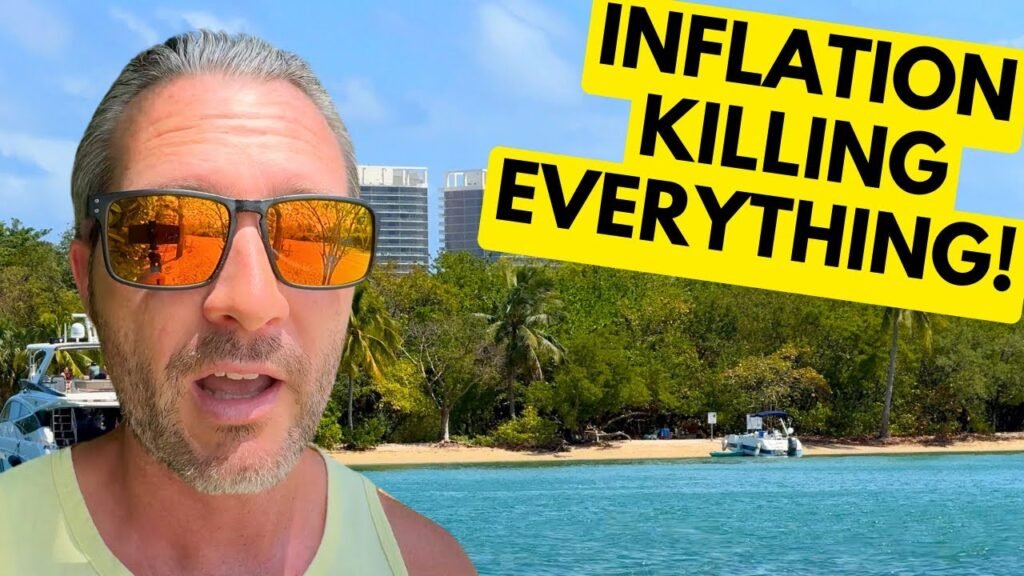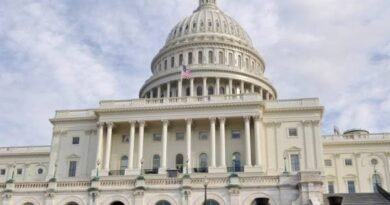The FED Just ADMITTED THE ECONOMY IS COLLAPSING!
So, The FED just released a beige book that paints a bleak picture of our economy. They’re resorting to printing money as a solution, but the recession/depression is looming. Offering 1 on 1 calls, equipment for filming and editing, and weekly video updates via email, Michael Bordenaro sheds light on the Federal Reserve’s serious findings about the economy’s imminent collapse. Despite public statements by Jerome Powell, the reality is grim for low and middle-income households facing inflation, declining financial well-being, and a shortage of affordable housing. The economy is spiraling downward, and it’s time to face the harsh truth.
Nonprofits are feeling the pressure too, as inflation impacts their ability to provide services and retain staff. Margins are shrinking, and layoffs are on the rise as companies struggle to balance the increasing costs without raising prices. The restaurant industry, in particular, is facing challenges with labor costs and pricing, leading to cutbacks and financial strain. It’s clear that the economic collapse is a harsh reality, and the effects are being felt across various sectors. The situation is dire, and it’s essential to acknowledge the warning signs for what they are.

The FED Just ADMITTED THE ECONOMY IS COLLAPSING!
You know one thing that’s funny about The current state of affairs with our Economy and the government and the FED Telling us that everything is okay when In fact we all know it isn’t is the fact That the fed’s beige book which is Something that they release publicly is Pointing to the opposite even though They’re telling us everything is good Their most recent beige book release Actually reveals some very serious Problems with the economy guys and There’s like this top five reasons in Here of why we are headed for a major Economic crash and I’m going to go over Them with you I don’t know about you Guys but I’m tired of being lied to but At least if you’re willing to look a Little bit further into it and check out Some of the details you can discover the Truth on your own and I think that’s why A lot of people enjoy watching these Videos cuz I’m doing that for you and Bringing it to you in a format you enjoy
Top Reasons for Economic Collapse — Why the Economy is Headed for a Major Crash
The first thing that the beige book outlines as a major problem is the painful situation for low and middle-income households. These households are currently facing the brunt of inflation, with the lower income bracket feeling a significant impact due to the higher proportion of increased inflation costs eating into their monthly budgets. According to the Cleveland Federal Reserve, two-thirds of nonprofits in its District report that low and middle income Americans have experienced a decline in their financial well-being over the past six months. Additionally, nearly three-quarters highlighted that the availability of affordable housing decreased amid rising rents. The Federal Reserve Bank of Philadelphia also noted that lower-income households are struggling with high prices, high-interest rates, repossessions, and delinquencies on auto loans due to increased interest rates and car prices.
The second reason stated by the beige book is the impact of inflation on nonprofits. Nonprofits are currently facing a crisis as inflation has caused the cost of providing services to increase while funding has not shown a corresponding increase. This has led to challenges in retaining employees, with turnover rates being high in states like New York where workers are leaving from more lucrative and less stressful roles in the public and private sectors. Nonprofits are experiencing a shortfall in funding, resulting in service reductions and increasing wait times for social services recipients.
Moreover, profit margins across various industries are starting to shrink. While companies were booming in previous economic cycles, officials at the St Louis Federal Reserve reported that inflation, although moderately increased, firms continue to face higher costs that are compressing profit margins as they are unable or unwilling to raise prices for customers. This is resulting in layoffs and significant job losses in various sectors, impacting both employees and the companies themselves.
The third reason for the economic instability highlighted in the beige book is the discrepancy between Federal Reserve reports and public statements by officials like Jerome Powell. While reports point to serious economic problems and the imminent risk of collapse, public statements have been more optimistic, leading to a sense of misinformation and lack of transparency. This inconsistency between what is reported internally and what is communicated to the public can create confusion and uncertainty among the general population.
In addition, the Beige Book mentions the impact of increased costs on various sectors such as housing, food, and healthcare. The rising costs are putting pressure on households and communities seeking assistance, leading to challenges in maintaining financial stability and accessing essential services. The ongoing struggle with affordability and the diminishing availability of affordable housing contribute to the economic strain on low and middle-income households, further exacerbating the economic crisis.
Lastly, the Beige Book warns of the challenges faced by businesses in maintaining profitability amid rising costs and limited pricing flexibility. With inflation impacting companies’ ability to maintain profit margins and the competitive landscape becoming more challenging, businesses are forced to make difficult decisions that can ultimately affect their long-term sustainability. This aspect of the economic downturn highlights the broader implications of the current economic situation and the need for strategic responses to navigate the turbulent financial landscape.
Overall, the top reasons outlined in the Beige Book point to significant economic vulnerabilities and the urgent need for proactive measures to address the impending crisis. By acknowledging these issues and taking decisive actions to stabilize the economy, policymakers, businesses, and individuals can work together to mitigate the adverse effects and pave the way for a more resilient and sustainable financial future.
Options for Action
For those seeking further insights and updates on the current economic situation, consider signing up for weekly video updates via email. Stay informed about key developments and trends that could impact your financial well-being and make informed decisions based on the latest information available.
Additionally, explore opportunities to get cash back on internet purchases as a way to optimize your spending and savings. By leveraging cashback offers and discounts, you can maximize your purchasing power and potentially save money on everyday expenses.
If you require personalized guidance or advice on navigating the economic challenges, consider taking advantage of the offer for 1-on-1 calls. Discuss your specific concerns and goals with a knowledgeable expert who can provide tailored recommendations and strategies to help you navigate the current economic landscape effectively.
Please note that affiliate links may be included in the video description, providing you with additional resources and opportunities to explore relevant products and services that align with your financial objectives.
Effects on Low and Middle-Income Households
Low and middle-income households are disproportionately affected by inflation, as the rising cost of living places a significant strain on their financial well-being. With inflation eroding the purchasing power of lower-income individuals, there is a decline in their overall economic stability and ability to meet basic needs.
The availability of affordable housing remains a pressing issue, with rising rents and limited supply exacerbating the housing crisis for low and middle-income Americans. As rents continue to climb and affordable housing options diminish, households are forced to allocate a larger portion of their income towards housing expenses, leaving less room for savings, investments, or discretionary spending.
Furthermore, the high prices, interest rates, repossessions, and delinquencies experienced by low-income households contribute to financial insecurity and economic vulnerability. The impact of inflation on essential goods and services further compounds the challenges faced by these households, making it increasingly difficult to achieve financial stability and upward mobility.
In light of these challenges, it is crucial to prioritize policies and initiatives that address the unique needs of low and middle-income households, ensuring that adequate support and resources are available to mitigate the adverse effects of inflation and economic instability. By focusing on inclusive and equitable solutions, policymakers can help foster a more sustainable and inclusive economy that benefits all members of society.

Disclaimer
The content provided in this article is intended for informational, educational, and entertainment purposes only. The views and opinions expressed are those of the author and do not constitute financial advice. It is important to consult with a qualified financial advisor or professional before making any financial decisions or investments based on the information presented.
Please note that Michael Bordenaro is not a registered financial advisor and any information shared should not be construed as professional financial advice. The content is designed to inform and educate readers about economic trends and developments, but individual circumstances may vary, and personalized guidance is recommended for specific financial planning needs.
In conclusion, the current economic challenges highlighted by the FED’s Beige Book underscore the urgent need for proactive measures to address the impending economic collapse. By taking decisive actions, staying informed, and seeking personalized guidance, individuals can navigate the turbulent financial landscape and make informed decisions to protect their financial well-being. Remember that staying informed and seeking expert advice are crucial steps towards securing a stable financial future amidst economic uncertainty.



